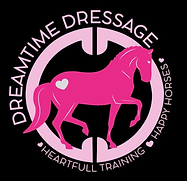Reward- make training meaningful to your horse
- Ash Kendall

- May 18, 2018
- 2 min read
Updated: Oct 3, 2025
Throughout training we correct and manage our horses to teach them what each aid means. It’s easy to forget to reward the moment they finally click, yet that praise is essential. Next time you’re in the saddle, remember to acknowledge your four‑legged partner.
Horses do extraordinary things for us that are far from natural. Loading a float goes against their instinct. Asking them to collect, engage their hindquarters, or gallop until their lungs burn is physically demanding and often uncomfortable—just like exercise is for us. Unlike us, they don’t understand the purpose of the work; they simply try to respond to our requests. That willingness alone deserves respect.
Training is a constant conversation of “no,” “yes,” and “try again.” Rewarding the slightest correct response when teaching something new tells the horse which behaviour earns relief and praise. Reward too early or reward incorrect responses and you teach the wrong lesson. Rewards can be a walk break, a big pat, a soft “good boy,” or whatever your horse responds to best.
Different horses need different rewards. A bold, dominant horse may relish big pats and fuss; a more sensitive horse may prefer a quiet neck scratch and to carry on. Be as generous with rewards as you are disciplined with corrections, and tailor them to the horse and the task. When a new movement is attempted and the horse gets it right, make it count. When a movement is established, demand precision but still acknowledge true quality.
Progress is rarely dramatic overnight. If your horse is five percent better at something that used to be a problem, celebrate it. Small improvements add up. Rewards keep the work motivating for a horse that’s training for your goals, not theirs—so make the work rewarding.
Be mindful of timing and type of reward. For example, offering the inside rein forward for a pat can be a useful check on contact, but it may not be appropriate for an unbalanced horse. A simple vocal praise might be a better choice in that case. Above all, avoid riding with the “handbrake” on—rewarding correctly supports relaxation and forwardness.
Reward the right response with clear, well‑timed praise and you’ll build a happier, more responsive, and more motivated horse who wants to do their best for you.





Comments